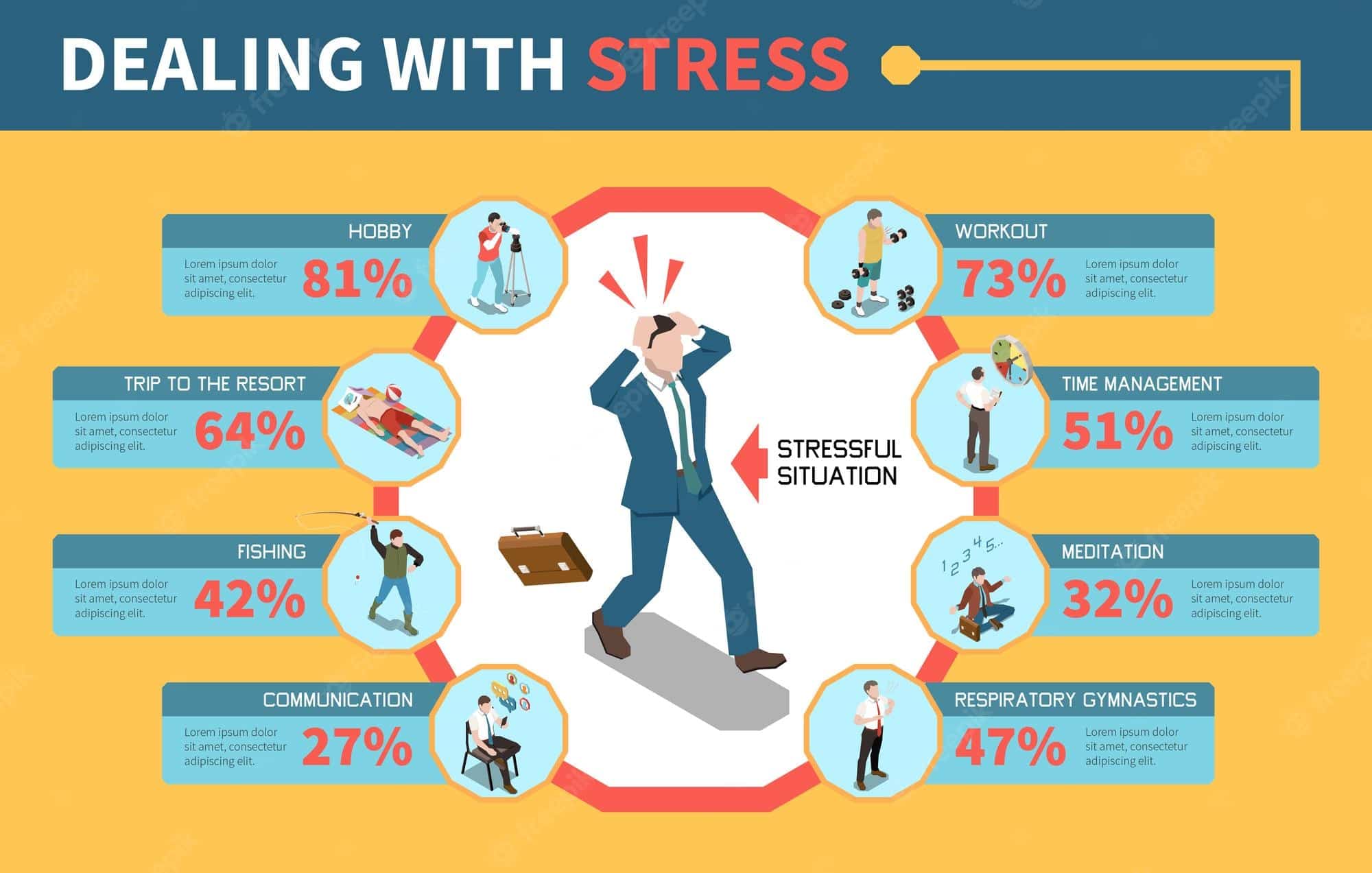How To Deal With Stress
Simple Ways To Quickly Relieve Stress In Your Everyday Life
Stress is a part of life. It’s important to recognise when you are experiencing stress and find healthy ways to cope with it. If left alone, stress can have negative consequences on your health, affecting everything from your sleep and appetite to your immune system and metabolic processes. Stress can be triggered by external factors like an hectic work schedule or internal factors like a negative self-image. Fortunately, there are many ways to manage and relieve stress in your everyday life. Here are some simple tips on how to deal with stress that will leave you feeling calm and relaxed once again.
Go for a walk or run
A walk or quick jog can lower stress levels, improve your cardiovascular health, and boost your mood, which can lead to better sleep and reduced anxiety. Even a short walk can help increase your blood circulation, which releases endorphins that promote feelings of happiness and calmness. If you struggle with making time to go for a walk or run, you can try fitting it into your commute to work or on your lunch break. You can also try walking or running with a friend to make it more enjoyable. Quick Tip: If you’re a runner, you may want to consider buying a weighted running belt. They can be used to hold your running essentials, such as your keys, ID, and phone. Running with a heavy pocket can cause strain on your lower back, but a running belt can take the pressure off your lower back and hips so you can focus on your running.
Meditate
Meditation is another great way to release stress and relax the body and mind. Meditation can be done in whatever way is most comfortable for you. Some people prefer to close their eyes and focus on their breathing, and others may find it helpful to have a point of focus, such as an image or words. You can try setting aside 10 to 15 minutes a day to meditate, either first thing in the morning or at the end of your day before going to bed. You can also try a guided meditation, which may be more relaxing than trying to meditate on your own. If you’re a beginner to meditation, start with short sessions, increasing the time as you get more comfortable with it. Quick Tip: If you’re new to meditation, try to set aside a time each day where you can clear your mind and relax. Start with short sessions and work your way up to longer meditations if you’d like.
Practice breathing exercises to relieve stress
Breathing exercises can help you relax and reduce stress. When you’re stressed, you’re more likely to take short, quick breaths, whereas taking slow deep breaths from your diaphragm, the muscle that separates your stomach from your chest, can help you relax. Try taking a few minutes out of each day to practice diaphragmatic breathing exercises. You can do this while sitting or while lying in bed to help you fall asleep or when you’re experiencing high levels of stress. Quick Tip: When you’re first starting out with diaphragmatic breathing, it might be easier to practice while sitting. Once you’re more comfortable with the technique, try doing it while lying in bed.
Get a massage or aromatherapy treatment
In addition to the physical benefits of massage and aromatherapy, both can help relieve stress and anxiety. Massage has been shown to lower cortisol levels, which can help you better manage stress. Aromatherapy uses scents to help you relax and unwind, which may help reduce cortisol and boost your mood. You can get a massage from a professional or purchase an aromatherapy kit and do it yourself at home. Quick Tip: If you choose to get a professional massage, keep in mind that the scent of any massage oils used may linger for a few hours after your treatment. This can make it easier to treat yourself to an aromatherapy massage at home by choosing scents that help reduce stress, such as chamomile or lavender.

Write down your thoughts and feelings
Some people are able to use writing as a form of stress relief. It is also a way to express thoughts and feelings in order to get them out of your head and onto paper. Writing can be used as a form of self-therapy because it allows you to take time for yourself, think about your thoughts and feelings, and process them in a way that is productive.
Talk to a friend or family member you trust
Sometimes the best way to deal with stress is to talk it out with a friend or family member you trust. Talking to someone you trust can help reduce your levels of cortisol, the hormone that is released during times of stress. It can be helpful just to have someone to listen to your problems. You can also try journaling your feelings. Journaling can help you process your emotions and can be a great way to get your feelings out on paper. Be sure to choose a journal that you don’t mind getting messy. Quick Tip: Journaling can help you get your feelings out on paper and process them in a way that makes them easier to handle. Choose a journal that you don’t mind getting messy, so you can express yourself fully without worrying about making it look nice.
Use self hypnosis to relieve stress
Self-hypnosis is a safe and effective way to relax and let go of stress. It is a natural and drug-free way to feel calm and relaxed. With self-hypnosis, you can train your mind to relax on command. This can be a useful skill to have when you are feeling stressed or anxious, as it’s a very effective way to relieve stress. There are many different ways to do self-hypnosis. You can find instructions online or from a book. You can also try listening to s self-hypnosis recording for anxiety and stress. These recordings are very helpful for getting into a deeply relaxed state, fighting tension, and triggering your relaxation response.
Don’t forget to eat well and exercise regularly
Eating a balanced diet low in sugar and refined carbohydrates can help keep your stress levels in check. Eating a diet rich in whole grains, fruits, and vegetables can help reduce your cortisol levels, which can help you better manage stress. Exercising regularly can help reduce your levels of cortisol and improve your overall health, making it easier to manage stress in your everyday life. Try to fit in at least 30 minutes of aerobic exercise (such as running, biking, or swimming) three to five times a week. It’s important to remember that exercising for 30 minutes is not an excuse to go out and eat a large meal followed by dessert. Quick Tip: Be sure to eat a healthy, balanced diet low in sugar and refined carbohydrates, and be sure to get enough sleep. Getting enough sleep can help your body recover from physical exertion and reduce your levels of cortisol.
Conclusion
Stress is a natural, daily occurrence. When managed properly, it can even be beneficial, spurring us to work harder and be more productive. However, left unchecked, stress can quickly become harmful and even lead to serious health concerns like anxiety disorders, insomnia, and high blood pressure. To avoid these outcomes, it’s important to recognize when you’re feeling stressed and take steps to manage it. There are many ways to deal with stress, and these can be especially helpful if you find yourself feeling stressed out on a daily basis. By following these tips, you can protect your health and feel less stressed in your everyday life.






